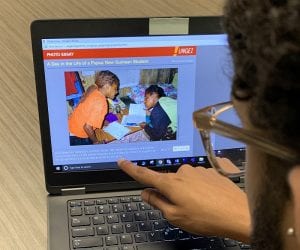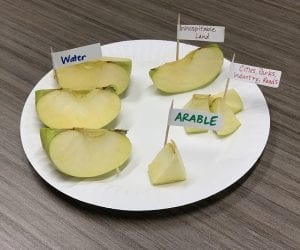The World of 7 Billion student video contest is back for the 2017-2018 school year, and this year’s topics are: Advancing Women and Girls, Feeding 10 Billion, and Preventing Pollution. In preparation for creating their videos, students may consider reading some contemporary books as part of their research to explore these global challenges.
Books on Advancing Women and Girls 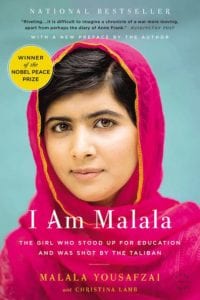
The obstacles surrounding the advancement of women and girls are varied and often differ from one region to the next. But this complexity offers a wide range of directions for your students’ videos, including girls’ access to education, gender inequities in politics and employment, child marriage, or women’s unequal access to basic healthcare and reproductive rights.
1. I Am Malala: The Girl Who Stood Up for Education and Was Shot by the Taliban by Malala Yousafzai with Christina Lamb
The story of an incredible young woman who as a teenager bravely championed education for all in Pakistan. When Malala was 15, she was shot in the head for defending her right to an education, but miraculously recovered and became a global voice for universal education, human rights, and peace.
2. Half the Sky: Turning Oppression into Opportunity for Women Worldwide by Nicholas D. Kristof and Sheryl WuDunn
This book is a call to arms in the fight against the prevailing oppression of women and girls in the developing world. The authors guide us through the struggles and triumphs of real women and girls, showing that with just a little help to reach their potential they can rise above injustice and suffering.
Books on Feeding 10 Billion
Far too many people are already experiencing hunger today, and how we will feed a future population that includes 3 billion additional people is a prevalent and pressing challenge. Your students’ videos can cover a variety of issues relating to the global food supply, including global hunger and its effects, industrial agriculture and energy use, and food waste. Students can also look into agricultural impacts of pesticide and fertilizer use, land degradation and erosion, unsustainable water use for irrigation, and the practice of clear-cutting to make room for cropland. 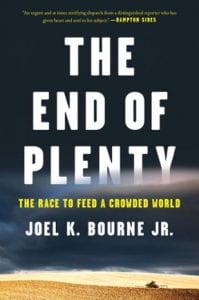
3. The Story of Seeds: From Mendel’s Garden to Your Plate, and How There’s More of Less to Eat Around the World by Nancy Castaldo
A middle school level book that explores where the food we eat comes from and where it goes. The author introduces students to the science and politics of agriculture as they relate to climate change, diseases, the environment, and human communities around the world.
4. The End of Plenty: The Race to Feed a Crowded World by Joel K. Bourne, Jr.
This book is a journalist’s inquiry into the future of food in the face of a growing human population, climate change, and ecological devastation. The author explores the different ways people around the world are trying to increase our food supply, and what’s at stake whether we succeed or not.
5. The No-Nonsense Guide to World Food by Wayne Roberts
This non-fiction book is meant to be a very readable overview of world hunger issues, and how they relate to the global economy and climate change. The author also discusses solutions to our food-related problems based on the concept of community food security.
Books on Preventing Pollution
The natural world is at risk due to human’s increasing numbers, consumption, and lifestyles. In researching this topic, your students might investigate pollution’s significant contributions to global climate change or the different ways pollution spreads through the Earth’s air, water, and land. Students can also look into how pollution directly harms human and wildlife health, and its effects across entire ecosystems. 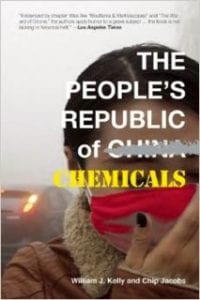
6. Flush by Carl Hiaasen
A short novel for middle school students that weaves water pollution, environmental justice, and activism into a humorous and thrilling mystery set in the Florida Keys.
7. The People’s Republic of Chemicals by Chip Jacobs and William J. Kelly
This non-fiction book by two environmental journalists tell the story of China’s destructive and deadly air pollution crisis, China’s coal-fueled rise as an industrial power, the manipulation of eco-statistics during the Beijing Olympics, and the nation’s mounting electronic waste problem among other topics to help readers understand the complicated and pervasive effects of pollution.



